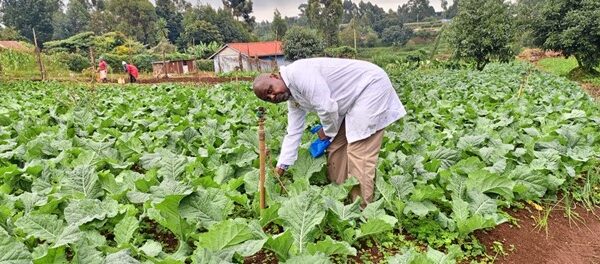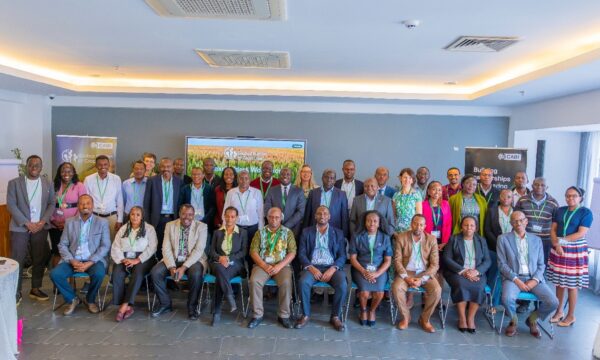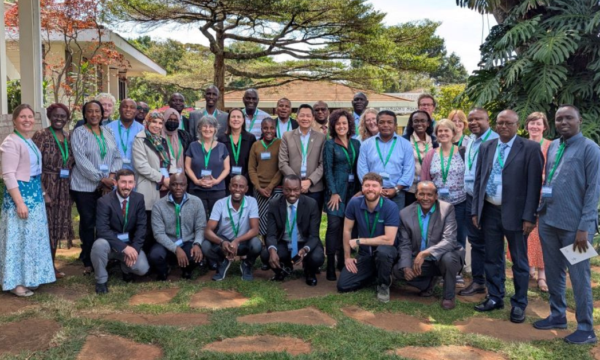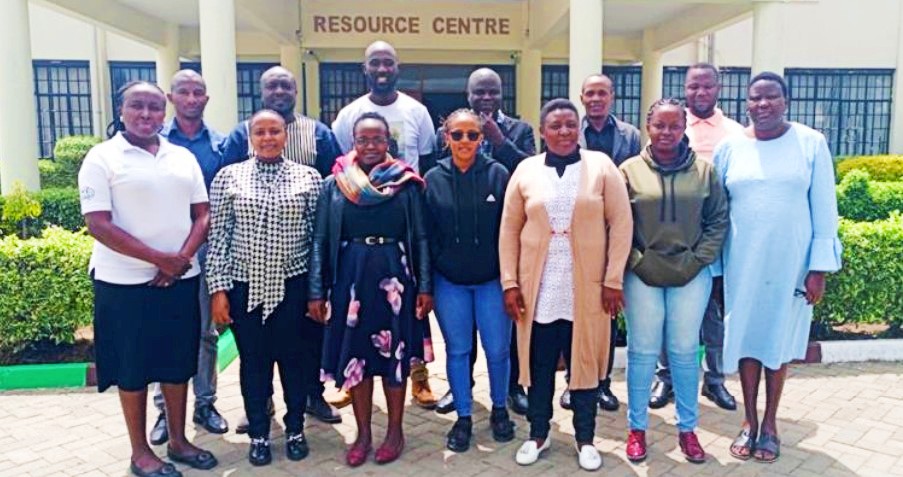
CABI has teamed up with the Kenya Agricultural & Livestock Organization (KALRO) to deliver training aimed at helping smallholder maize, bean and tomato farmers understand important crop pest alerts derived from Earth Observation data.
Experts in digital development from CABI’s Regional Centre for Africa in Nairobi, Kenya, held a two-day Pest Risk Information Service (PRISE) workshop focused on validating pest advisories meant for dissemination during Kenya’s March-May long rainy season.
These advisories target smallholder farmers growing maize, beans, and tomatoes, key crops that are highly dependent on seasonal rainfall and are vulnerable to pest outbreaks – such as the fall armyworm and tomato leafminer – during this period.
Timely pest alerts
Pest outbreaks significantly threaten food security in Kenya, particularly for smallholder farmers. To address this, CABI’s PRISE early warning system uses Earth Observation data, weather forecasting, crop biology, pest life cycle, and agronomic ground practices to generate timely pest alerts.
These alerts guide farmers on how to manage pests on their crops in different agroecological zones and using the national crop calendar for the rainfed agricultural system. From the alerts, farmers can get the time at which they can apply or perform the appropriate management practices to their crops, suppressing pest populations, limiting pest-induced damage.
For the last two years, CABI has partnered with KALRO to send out PRISE advisories via SMS to farmers and PDF bulletins to KARLO experts to help mitigate major pests of maize, beans, and tomatoes.
Currently reaching over four million farmers
They are currently reaching over four million farmers in different agroecological zones. As digital agriculture gains priority in Kenya’s agricultural policy, the partnership aims to enhance the relevance, accessibility, and responsiveness of pest advisories.
CABI’s Henry Mibei, Manager, Digital Development, Africa, and Lucy Karanja, Content Manager, were on hand to deliver the training on how to access and generate PRISE bulletins, pest alerts in map formats as well as pest management recommendations (PMDGs) in the PlantwisePlus Knowledge Bank.
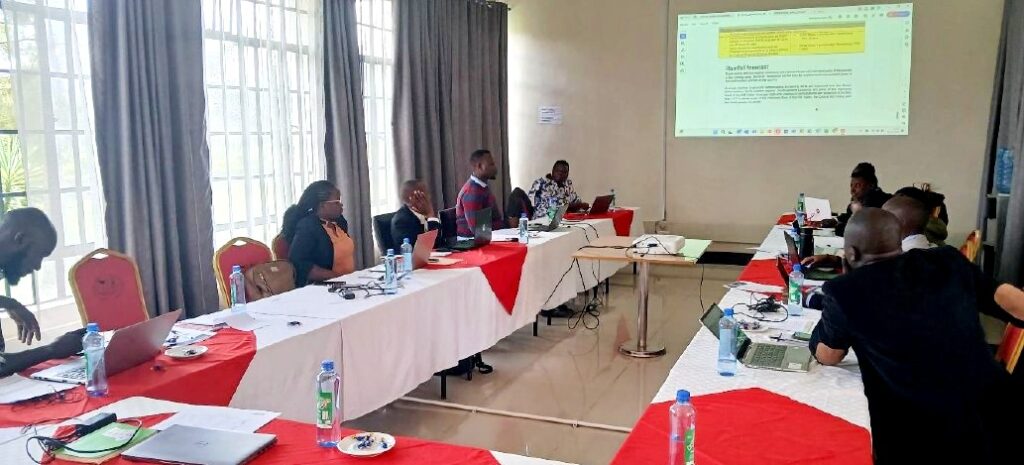
The Knowledge Bank houses over 15,000 pieces of content on crop health issues, including pest and disease management, farming practices and pest distribution. Data is an integral part of the PlantwisePlus Knowledge Bank. It drives the content of the distribution maps on the species-specific Technical Factsheets and is used in the decision support tools including the diagnostic tool.
Mr Mibei said, “As part of the training we also sought to review and validate current good agricultural practices (GAP) advisories, including PRISE advisories, ensure the messages remain up-to-date, accurate, and responsive to farmers’ evolving needs.
“We also aimed to develop an action plan for survey that will strive to assess the effectiveness of the PRISE pest alert system and capture farmers’ experiences.”
Integrating local agronomic data with pest modelling tools
Mr Mibei stressed the value of integrating local agronomic data with pest modelling tools. He emphasized tailoring messages to farmers’ realities and mentioned the potential to incorporate other pests.
Ms Karanja, meanwhile, highlighted the importance of validating advisory messages and integrating indigenous knowledge to boost uptake. She proposed improving linkages between PRISE and KALRO’s call centre data for continuous feedback and advisory refinement.
And the Director of ICT at KARLO said digital agriculture is a national priority and discussed smallholder constraints such as land size and access to actionable data. He advocated for more precise, timely pest alerts to enhance productivity and suggested expanding the PRISE platform to include market-orientated features and additional value chains.
It was also recommended to include additional weather indicators, such as humidity and wind, in forecasts and to strengthen farmer feedback mechanisms through KALRO call centres.
Additional information
Main image: Thetraining aimed to help smallholder maize, bean and tomato farmers understand important crop pest alerts derived from Earth Observation data.
Other relevant stories
About PRISE
PRISE, which began in 2017, was carried out by a team of scientists from Africa and Europe for farmers in sub-Sharan Africa. In Europe, the partners include CABI and Assimila Ltd, who work with four in-country lead partners from government agencies in Africa.
These include the Kenyan Agricultural and Livestock Research Organization (KALRO); the Plant Protection and Regulatory Services Directorate (PPRSD) and Crop Research Institute (CRI) in Ghana; the Department of Agriculture Extension Services in Malawi; and the Zambia Agricultural Research Institute (ZARI).
In the early part of PRISE, technical help was also provided by the Science and Technology Facilities Council/Centre for Environmental Data Analysis (2017-2022), and King’s College London (2017-2020).
The PRISE project was funded from 2017-2022 by the UK Space Agency’s International Partnerships Programme, and since 2022 by CABI’s PlantwisePlus programme as a collaboration between CABI and Assimila LTD. CABI gratefully acknowledge the funding provided for this research by the UK Space Agency International Partnership Programme funded from the Department for Business, Energy, and Industrial Strategy’s (BEIS) Global Challenges Research Fund (GCRF) and core co-financing support from CABI.
Related News & Blogs
CABI workshop explores gendered impact of maize crop loss in Kenya
A stakeholder inception workshop recently hosted by CABI in Nairobi, Kenya, has explored how men, women, and youth are differently affected by maize crop loss, one of the most persistent challenges facing smallholder farmers across the country and beyo…
21 October 2025


